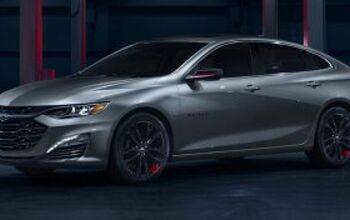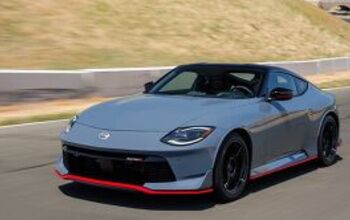Aussie Camera Company Banks Big Bucks From Ailing America
At its annual shareholder meeting in Melbourne, Australia yesterday, Redflex announced it had become the largest photo enforcement vendor in the world. Redflex officials cited worsening US economic conditions as a key factor in its success, as municipal leaders across America face declining income and property tax receipts. Desperate to find new sources of revenue, mayors and city councils have sought out the company’s turnkey red light camera and speed camera systems. Redflex Chairman Chris Cooper told shareholders that such expansion in a down market was a sign of the company’s strength. “Clearly the world’s commercial situation is at this time extremely unstable and indeed to many nothing less than frightening,” Cooper said. “Despite this general scenario the good news is that Redflex continues to grow strongly in its business pursuits around the globe… with post-tax profit rising by a very pleasing 44 percent.”
Eighty-percent of this revenue came out of the pockets of US drivers already hard hit by economic conditions in Arizona, California, Colorado, Illinois, Louisiana, Maryland, New Mexico, Ohio, Oregon and Washington. The head of US operations for Redflex, Karen Finley, singled out the new statewide freeway speed camera program in Arizona as an example of a “high yielding” effort with “other states eagerly awaiting program results.”
With a total of 1500 automated ticketing machines, Redflex CEO Graham Davie claimed that no other “pure photo enforcement vendor” in the world could match the Australian company’s revenue. Davie’s formulation excluded corporate giants like Affiliated Computer Services (ACS), a Fortune 500 company, and Germany’s Robot GMBH (Traffipax), each of which operate cameras in addition to other, large-scale business lines.
Redflex itself hopes to be absorbed by a corporate giant and has tried to drive up its stock price in advance of expected buyout offers from unnamed suitors. The extra capital provided by a larger parent company would help Redflex in its plan to match the photo ticketing density of the UK which uses 6000 cameras to monitor a population of 60 million. With five times the population, the US could see 30,000 speed cameras plus 35,000 red light cameras for a total of 65,000 automated ticketing machines. In this case, Redflex would collect just under $2 billion from drivers each year if the company maintained its existing market share.
The biggest challenge to Redflex dominance comes from the company’s US-based competitor, American Traffic Systems (ATS). In a lawsuit expected to be heard early next year, ATS argues that the contract between Redflex and the state of Arizona was void because Redflex had been illegally using radar units that were not certified by the Federal Communications Commission. Redflex countered that it was not at fault because company officials were not aware of the law.
More by The Newspaper
Latest Car Reviews
Read moreLatest Product Reviews
Read moreRecent Comments
- SCE to AUX Given this choice - I'd take the Honda Civic Sport Hatchback (CVT). I 'built' mine for $28777.To my eye, the Civic beats the Corolla on looks these days.But for the same money, I can get an Elantra N-Line with 7-speed DCT, 201 HP, and good fuel economy, so I'd rather go for that.
- Kwik_Shift_Pro4X '19 Frontier Pro 4X. Next to nothing. All oil changes are on schedule. Still on original brakes at 79000 miles. Those are due soon. Estimate $1000 all in.
- Dr.Nick The cars seem really expensive with tight back seats and Cadillac was on the list of the highest price gouging dealers coming out of COVID. I don’t understand the combination, shouldn’t they be offering deals if they are not selling?
- Dr.Nick Too bad the Turbo XT isn’t coming. The Outback Turbo is not bad at all, would be a lot of fun in the shorter Forester.
- Dave M. Looking for a cheap commuter economy car, the base Corolla hybrid all the way. Willing to spend more for the toys I like (power seats, sunroof), I'd wait for the Civic hatchback hybrid. The Civic definitely has a nicer interior IMO.

































Comments
Join the conversation
I've got no problem with my community deploying traffic cameras as long as they don't have a problem with me patronizing merchants in communities that don't.